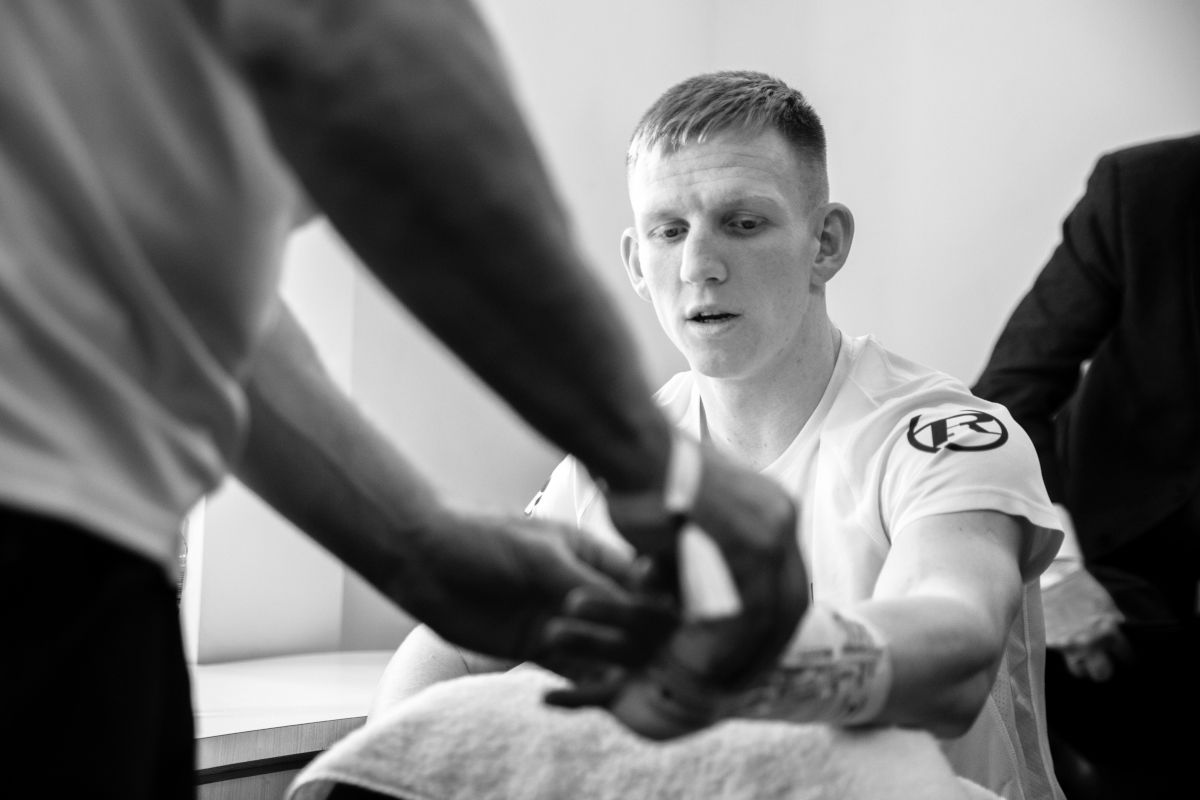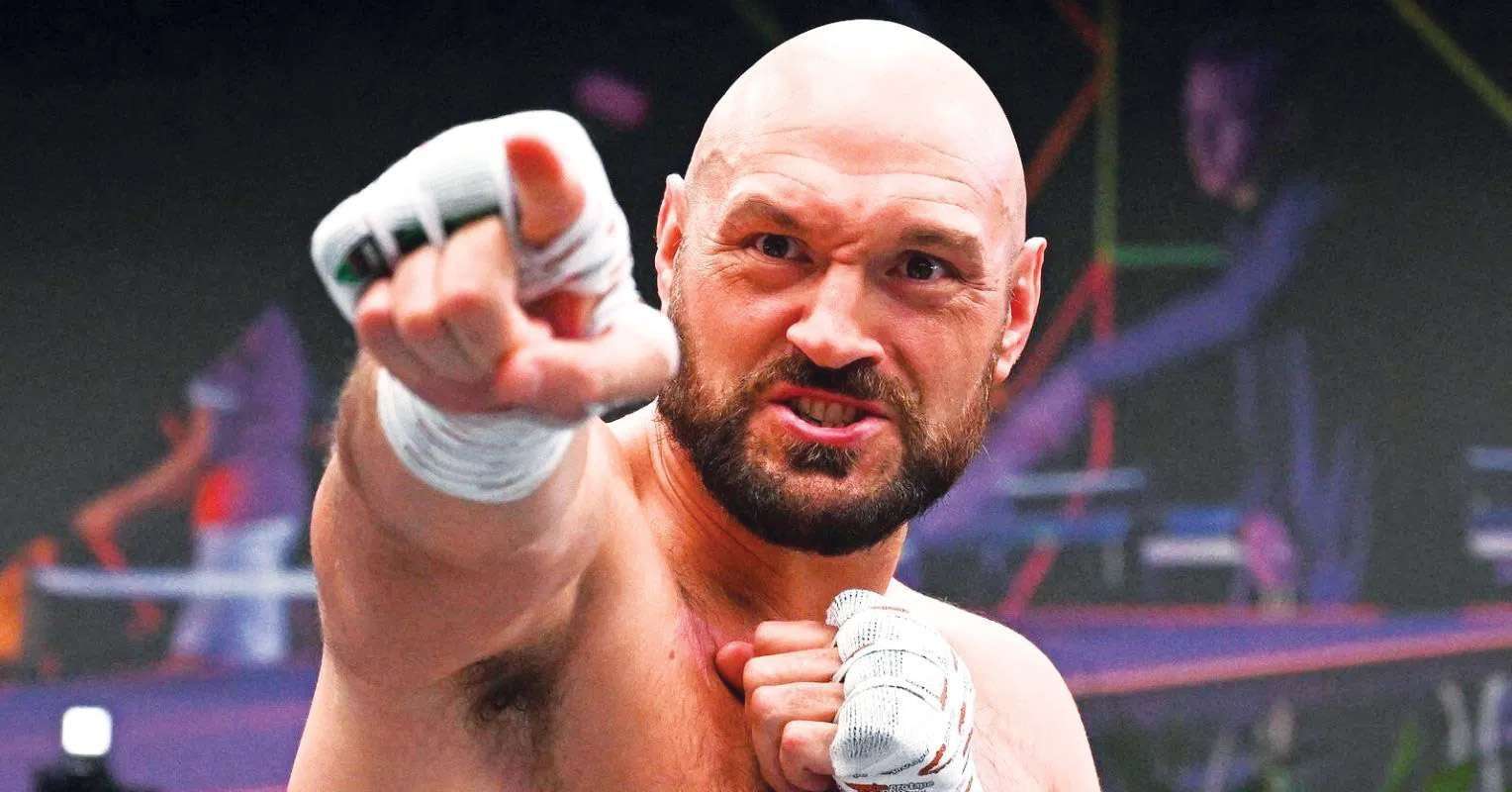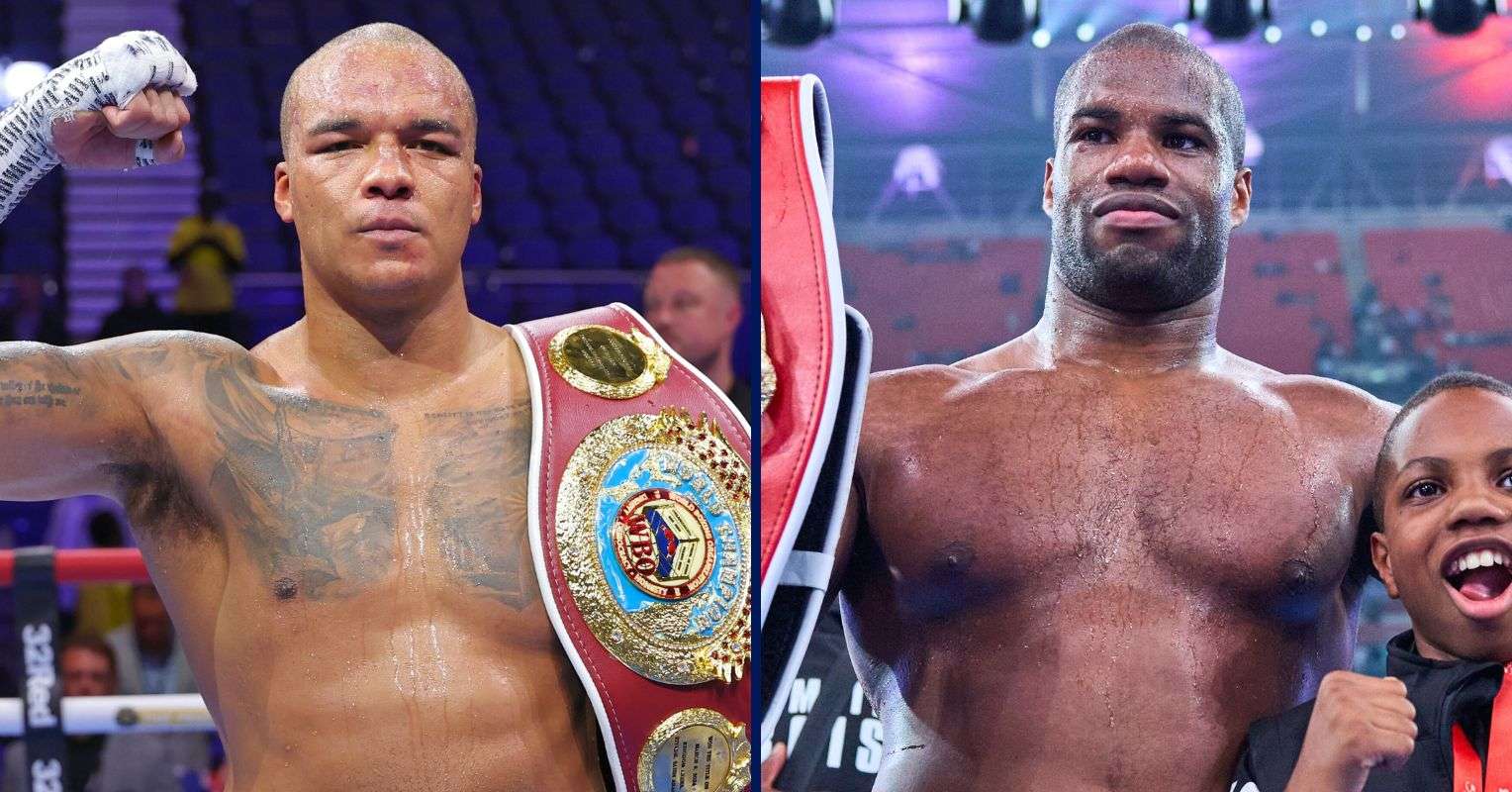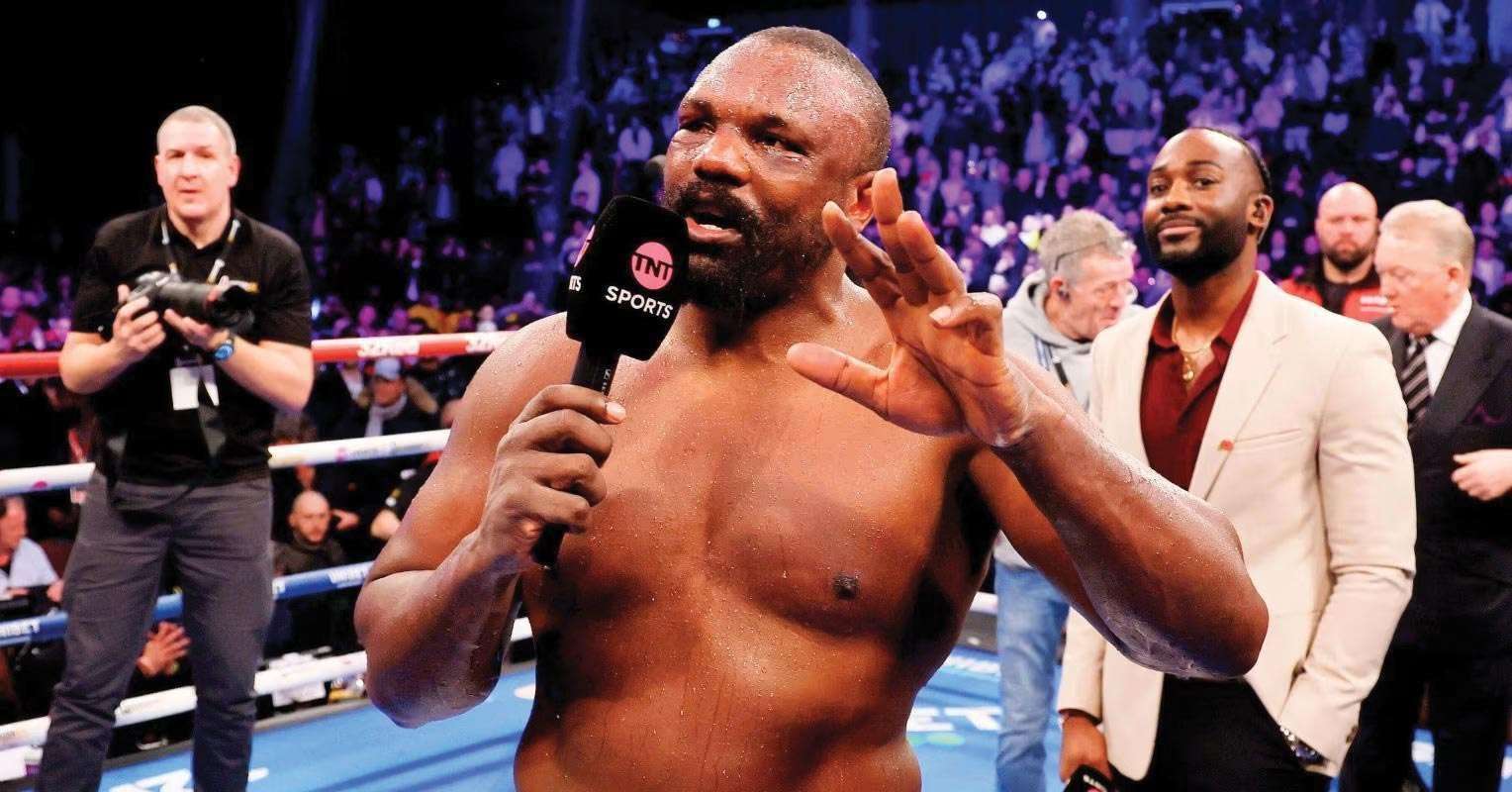The word ‘addict’ may conjure up cinematic images of a dishevelled, middle-aged drunk begging to be served or an emaciated track-mark-riddled junkie trembling in need of their next fix. Not a 23-year-old athlete in the physical shape of their life, but then, that’s kind of the point. Addiction is indiscriminate, a pernicious illness that will not stop until its victim is either dead or seeks help. The visuals vary, but the emotions experienced by those in its tight grip are largely the same: anxiety, guilt, shame and, perhaps most commonly, self-delusion; just one more drink, one last hit, one final punt.
All of which speaks to the bravery shown by Ted Cheeseman, proud British super-welterweight champion, for admitting to his own ongoing battle with gambling addiction – first revealed in Matchroom’s excellent Born Fighter series – an opponent that he previously and characteristically chose to face alone. It’s a fighter’s mindset: vital though their support network is, once the bell rings, it’s mano a mano and they shield those closest to them from the harsh and brutal reality. Trainer Tony Sims, fiancée Jenna and his parents knew he liked a bet, but all were kept from the full extent of the problem.
“No one ever knew, I kept it a secret, only a few close people knew and they couldn’t say because they didn’t wanna fall out with me,” Cheeseman reveals. He sounds low but seemingly grateful to finally tell the truth. “After my last fight I finally admitted it to Tony, my team and everyone. They helped me get help and I’m feeling the best I’ve felt in a long time.
“People knew but not to the extent. As a gambler you tell people about your wins but not as many of your losses. You’re secretive, as an addict you’re a liar, you hide stuff, you’re angry but people don’t know why, you’re living a lie.”
The addiction began when Cheeseman was still a teenager, a promising amateur boxer with too much time on his hands. A way to kill an hour or two quickly became an all-consuming habit that Ted found increasingly hard to resist. He would spend longer and longer in the bookies, betting on a variety of sports, elated by the wins devastated, if only briefly, by the losses, before finding a glimmer of hope in the next race or match. As large portions of his days became devoted to an increasingly harmful hobby, did no one notice his absence?
“You’re just out with your mates, what can they say?” he asks, a rare and welcome spark of defiance emerging from his lament. “I could be in the gym longer or at later times. I’m a grown man, no one tells me what to do.
“I didn’t realise how bad it was until there were consequences. I would gamble on what fly would crawl up the wall first; if I could bet on it I’d bet on it. A lot was in the bookies – horses, dogs – or online roulette, online betting. I mainly used one bookies and where we’ve moved, in this area not everyone knew me. As a gambler you don’t tell everyone who else is in the bookies and, except for the people behind the counter, no one knows the extent. Someone who has an addiction will bet their last tenner but to me, coz I’m earning a lot of money, their tenner would be like my £10,000; it hurt them as much, losing it.”
Cheeseman got lost on a dead-end path, but something disastrous had to occur before he would confront the issue; until then, he would deny the existence of the problem. ‘Help’ would come from an unlikely and unwitting source, a European champion arriving from Spain with his own challenges and ambitions. When Sergio Garcia outboxed and outfought a reckless Cheeseman on a February night at the O2, the defeat imbued those watching with a general sense of disappointment but, for the Bermondsey man, ultimate liberation from the shackles of addiction was just minutes away. Losing as a pro for the first time, having already gambled away the fight purse and with his first child less than a month from entering the world, Cheeseman had finally made it; he had hit rock bottom.
“It’d got the better of me,” Ted explains. “If you watch the fight, I boxed nowhere near like I usually do. My opponent may have been too much of a step up anyway, but I’ll never know coz of how mentally drained and damaged I was at the time. By the end, I was basically punishing myself, boxing with my hands down coz I knew I’d mucked up, I’d done so much wrong. I done my whole purse before I even got to the fight, the last bit was done on the weigh-in day; that was all or nothing. Most boxers at 23 can only dream of topping the bill at the O2 for the European title but I’m earning money I’ve already spent, I trained hard but I wasn’t mentally in the right place, I had a baby on the way.
“After the fight, I walked back in the changing room, devastated. I said, ‘It weren’t me in there.’ Tony said, ‘What’s wrong?’ and I said, ‘If you come in here, I’ll tell you,’ and once we went in another room, I told him everything. He asked, ‘Why didn’t you tell me a long time ago? You need to get this sorted before even thinking about boxing, then you can get back to being you. You’re lucky you got this far doing what you’ve been doing; it shows how far you can go.’”
Recovery is a lot like training. It requires hard work, albeit of a different nature, and the discipline to repeat the same positive behaviour, one day at a time, in order to reach a broader goal. Cheeseman now attends support groups – once a week minimum – with the same diligence as he approaches his gym work. Being around like-minded sufferers provides the level of understanding he never felt able to access in his daily life. An addict for around six years, Cheeseman has not placed a bet since April 6 and, while the road back is never-ending, finds himself mentally and emotionally refreshed ahead of a British title defence against Kieron Conway next week.
“It’s hard in camp coz you’re tired, you can’t be bothered,” he admits. “You tell yourself, ‘It’s a waste of time, I’ve got it sorted,’ but that’s the worst thing to think coz it’s with you forever and all it takes is one slip-up. When you go to meetings the main thing as an addict is to take each day as it comes; every day you don’t gamble, it’s a better day. I can’t say ‘never again’ but I can keep on going to meetings. As long as I don’t stop that, I’ll have a much better life.
“I shouldn’t be embarrassed but as a proud person, a fighter, you’re not expected to be doing these things. I feel a lot of guilt. A lot of people speak to me and say, ‘Can’t you just stop it?’ But an alcoholic can’t just stop drinking, you’re an addict, it’s an illness, you need to get help.
“I’ve been with Jenna for six-and-a-half years. She’s supported me, but it’s hard for someone to understand. Obviously she has bets, on the Grand National like everyone does, but if she loses it don’t matter to her; with me, if I go in with 100k I come out with 200k or nothing. She didn’t know how bad it was, as much as we’re partners, she’s seen how angry, upset and mentally drained it got me so she don’t wanna push me too much.”
Now Cheeseman is receiving the help he requires, those around him, Jenna included, have already noticed a significant change in him; a weight has been lifted off his broad shoulders. Baby Ted, born at the end of February, has also chipped in, taking his father’s mind off his demons and occupying a disproportionate amount of his free time. This is a blessing, given the new dad now requires something other than gambling to fill the gaps between training sessions.
“Before I always wanted to be on the go but now I’m relaxing more,” he tells me, sounding upbeat for the first time, like a lingering dark cloud has at last passed from view. “I have a little carry and feed with my baby, I’ve been speaking to him, obviously he can’t speak yet but he makes his noises. I’ve been on the Xbox a lot more, it’s just little things, I might go down the golf range. Before I wouldn’t wanna sit and watch TV or play Xbox, all I was thinking about was trying to earn money or chasing what I’d lost. I feel like I’ve got a lot more time on my hands now.
“Everyone has said, ‘You seem a lot happier in yourself.’ I have always been a dedicated, hard trainer but training was getting extra hard coz I weren’t actually thinking about training. This camp I’m fully focused, doing 12-round sparring, hitting good times in sprint sessions; it’s hard work still but I’m getting through it a lot easier.
“As much as you love gambling while you’re involved in it, I don’t miss it, I just regret it. That’s one of the worst and hardest things, what you have lost and could have done, but the main goal is to get past that and then you can get everything back again.”
Cheeseman has already regained his peace of mind but it will take genuine commitment, even beyond that which he has long shown as a boxer, to maintain his new-found restraint. Addiction will not crumble from the first blow it takes or simply retire in the corner, it is the Arturo Gatti of illnesses, relentless and indefatigable. But, if Ted keeps working hard, taking it one round at a time, he may just last the distance and take a hard-earned decision in his greatest, and gravest, fight.




